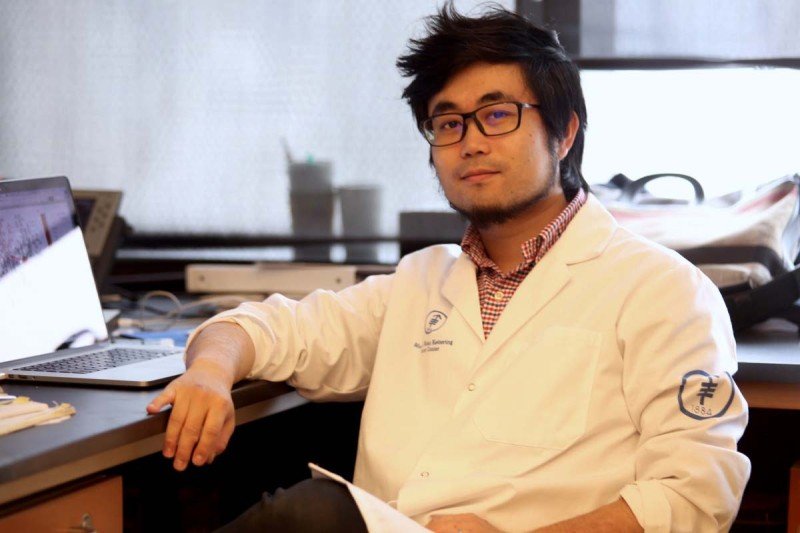
Tai Wang is a Research Associate who has a wide range of expertise covering subjects in Biology, Chemistry (Computational), Pharmacology and Bioinformatics. He received his undergraduate and graduate education in Biochemistry in France and Switzerland, respectively. During his PhD studies, he acquired strong skills in Computational Biology and Computational Chemistry through a drug discovery project for species-selective inhibitors of HSP90 using computer-aided drug design and molecular dynamics simulations.
Since joining Dr. Chiosis’ lab in February 2015, he continued to foster his skills in Computational Biology. His interdisciplinary expertise put him in a unique position to work as a data scientist who devises analytical algorithms and visualization methods for complex “big biological data” generated in the lab. He independently developed a series of R programs that enabled the analyses of large proteomic datasets. These were key for deriving several mechanistic hypotheses related to tumor mechanisms and the role of chaperones in diseases.
Besides computational studies, he is building on his previous wet-bench skills with new experiences in Pharmacology and Translational Science in Dr. Chiosis’ lab. He focuses on the study of stress chaperome complexes (“epichaperomes”) and their pathologic relevance in a variety of diseases, such as in cancers and neurodegenerative diseases, using biochemical methods and computer models. He works to develop biochemical methods for the precise analysis of chaperome complexes in native tumors and in tumors in which these complexes are modulated upon chemotherapy induced cellular stress. He is implementing these methods into his current project (funded by a postdoctoral award from the Lymphoma Research Foundation), which aims to develop novel rational combination regimens for aggressive lymphomas.